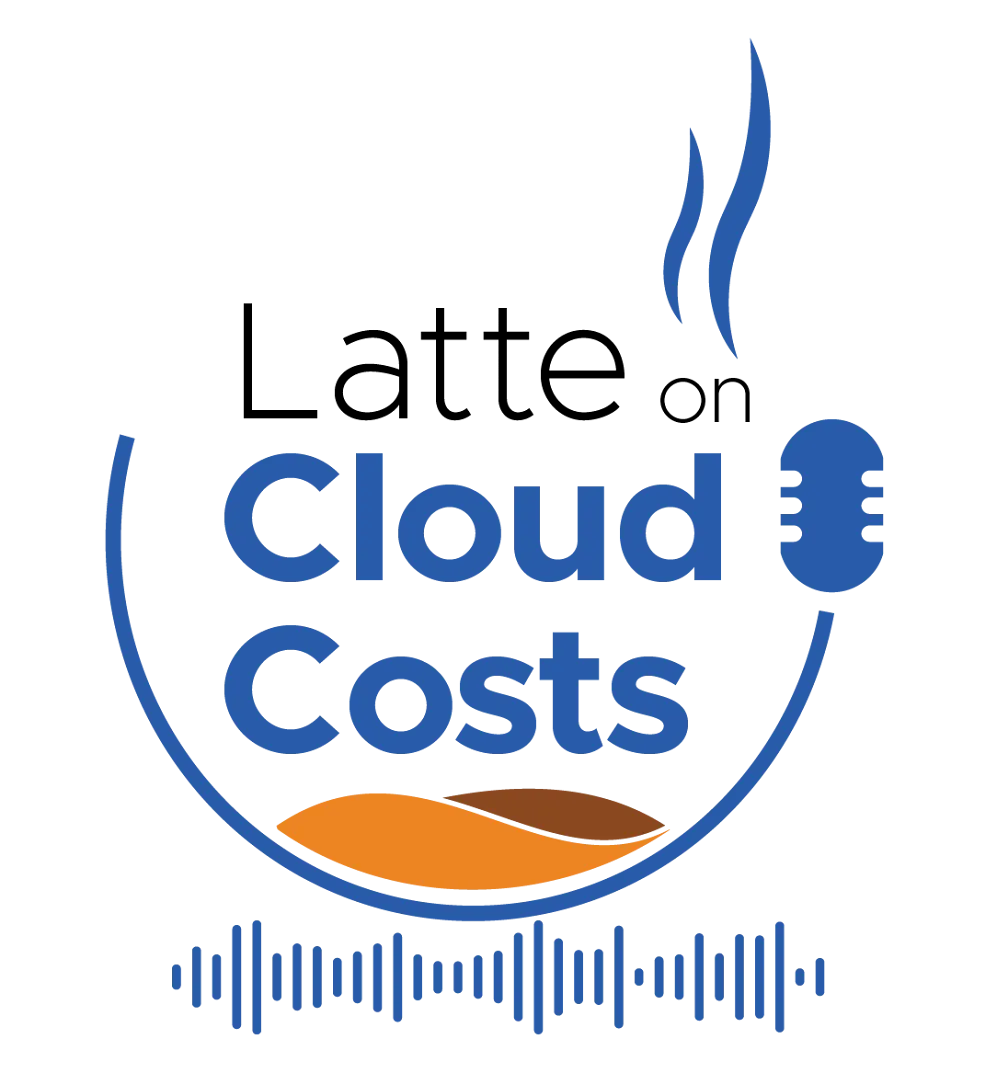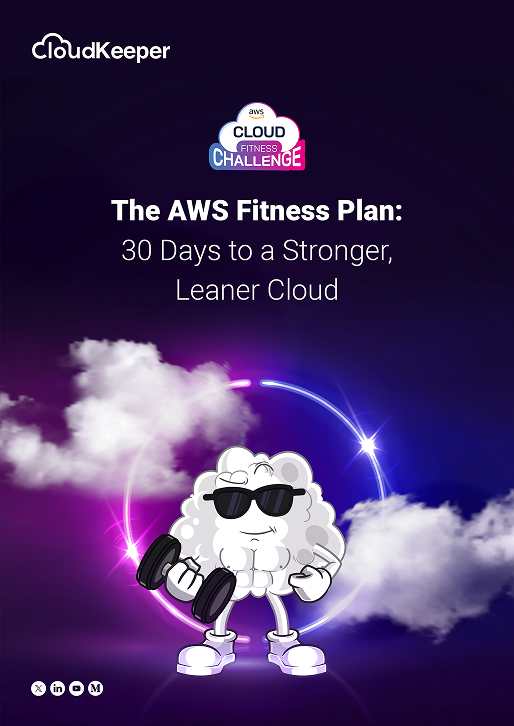Season 1 of CloudKeeper's "Latte on Cloud Costs" podcast has been a remarkable journey through the complex landscape of cloud cost optimization and FinOps. Host Praneet Chandra brought together four distinguished industry experts who shared invaluable insights, debunked common myths, and provided practical guidance for organizations navigating their cloud optimization journey.
Meet Our Season 1 Guests
Episode 1: Rakesh Bhati - A cloud cost optimization expert who laid the foundation for understanding FinOps fundamentals and the importance of cross-team collaboration.
Episode 2: Christian Magherusan-Stanciu - Cost optimization specialist and founder of Linear Cloud, who emphasized the technical implementation aspects of optimization strategies.
Episode 3: Victor Garcia - DevOps engineer and creator of FinOps Weekly, who bridged the gap between DevOps and FinOps practices.
Episode 4: Avinash Gupta - Senior Director of Engineering at Physicswalla, who provided real-world insights from scaling a high-growth EdTech platform.
Universal Truths: What Every Expert Agreed On
1. Cost Optimization is a Continuous Journey, Not a Destination
All four guests made it clear that cloud cost optimization isn’t just a one-off task; it’s a continuous journey that demands ongoing focus and fine-tuning. Avinash pointed out, "Cost optimization is an ongoing activity," emphasizing how his team at Physicswalla integrates it into their everyday operations. Christian reinforced this by explaining that continuous optimization should become a habit within organizations, comparing it to other essential business practices that require consistent attention. This perspective challenges the common approach of treating cost optimization as a quarterly exercise or crisis response.
2. It's About Value Maximization, Not Just Cost Cutting
A recurring theme across all episodes was the shift in mindset from simply reducing costs to maximizing value. Victor articulated this perfectly: "Maximize the value instead of always dropping down," emphasizing that FinOps should focus on getting the most business value from cloud investments. Rakesh echoed this sentiment, stating that "FinOps is about making the most out of every dollar," and explained how his approach centers on resource utilization rather than just savings. This value-first approach helps organizations avoid the trap of cutting costs at the expense of performance or business outcomes.
3. Culture and Collaboration are Critical
Every guest highlighted the importance of creating a cost-conscious culture across the organization. Victor stressed that "FinOps creates the environment and culture for cost awareness," explaining how this cultural shift enables teams to make better decisions autonomously. Avinash declared that "It's everyone's job to optimize costs," describing how Physicswalla engages all teams in cost accountability. Rakesh emphasized the collaborative nature of effective cost management, noting that cloud cost optimization requires coordination across teams. This cultural emphasis represents a fundamental shift from traditional IT cost management, where only specific teams were responsible for infrastructure expenses.
Common Misconceptions Debunked
Our experts consistently addressed several dangerous misconceptions that plague organizations:
Myth 1: Moving to the Cloud Automatically Guarantees Savings
Rakesh made it clear that "Moving to the cloud doesn't guarantee savings." He pointed out that without the right optimization strategies in place, cloud expenses can quickly get out of hand.
Myth 2: Optimization is Straightforward
Christian pointed out that many companies suffer from "analysis paralysis," believing that cost optimization is simple when it actually requires technical expertise and careful implementation.
Myth 3: It's Only the IT Team's Responsibility
Everyone agreed that optimizing costs is a team effort. It takes collaboration among developers, operations, and business teams, with each group playing a vital role in the process.
Essential Strategies and Best Practices
Start with Visibility and Measurement
Tagging Strategy: Rakesh emphasized that "implementing a tagging strategy is crucial for cost visibility," enabling organizations to track and attribute costs accurately across different teams and projects.
Key Metrics to Track:
- Unit economics (cost per customer/transaction)
- Resource consumption patterns
- ROI of optimization efforts
- Data transfer costs (identified by Avinash as "the number one culprit")
Focus on High-Impact Areas
Right-Sizing Resources: Multiple guests highlighted the importance of matching resource allocation to actual needs, with Christian noting that understanding "specific metrics for each resource is crucial."
Automation with Purpose: Victor cautioned that "automation should be evaluated for its actual necessity," ensuring that automated solutions actually provide value rather than adding complexity.
Prioritize by Impact: Avinash recommended "focusing on large impact items" to yield significant cost reductions, while Christian suggested prioritizing high-cost services for better returns on investment.
Technical Implementation Focus
Christian brought a unique technical perspective, emphasizing that cost optimization requires hands-on implementation rather than just analysis. His Auto Spotting tool demonstrates how technical solutions can automate the use of spot instances for substantial savings.
Practical Tips for Getting Started
Phase 1: Foundation Building
- Implement comprehensive tagging strategies.
- Set up continuous monitoring and alerting.
- Establish regular reporting mechanisms.
- Build visibility into current spending patterns.
Phase 2: Culture Development
- Engage teams through hackathons and training.
- Make cost considerations part of the development process.
- Establish accountability across teams.
- Create cost-conscious decision-making frameworks.
Phase 3: Advanced Optimization
- Implement automated right-sizing solutions.
- Leverage advanced tools like Auto Spotting for spot instance management.
- Optimize data transfer costs through architecture changes.
- Implement scheduled scaling for peak and off-peak optimization.
The Role of FinOps Teams
A significant insight from multiple episodes was the importance of centralized FinOps teams. Rakesh highlighted that "a centralized FinOps team fosters a cost-conscious culture," while Victor emphasized focusing on "one aspect of FinOps at a time for better results."
The consensus was that FinOps teams should:
- Provide tools and visibility rather than dictate solutions
- Enable other teams to make cost-conscious decisions
- Measure and communicate the value of optimization efforts
- Facilitate cross-team collaboration and knowledge sharing
Key Takeaways for Different Stakeholders
For Leadership:
- Invest in building a cost-conscious culture
- Support continuous optimization initiatives
- Measure and communicate ROI of FinOps efforts
- Ensure proper tooling and resources for teams
For DevOps/Engineering Teams:
- Integrate cost considerations into development processes
- Implement comprehensive monitoring and alerting
- Focus on technical implementation of optimization strategies
- Collaborate closely with business teams on requirements
For Finance Teams:
- Move beyond simple cost cutting to value maximization
- Partner with technical teams to understand cloud economics
- Implement proper attribution and chargeback mechanisms
- Focus on unit economics and business metrics
Conclusion
Season 1 of "Latte on Cloud Costs" has provided a comprehensive foundation for understanding modern cloud cost optimization. From Rakesh's emphasis on collaboration and visibility, to Christian's technical implementation focus, Victor's culture-building insights, and Avinash's real-world scaling experiences, we've gathered a wealth of practical wisdom.
The common thread throughout all episodes is clear: successful cloud cost optimization requires a holistic approach that combines technical expertise, cultural change, continuous measurement, and relentless focus on value creation. As we move forward, these principles will continue to guide organizations toward more efficient and effective cloud operations.
Ready to start your cloud cost optimization journey? Connect with CloudKeeper to learn how we can help you implement these expert insights and maximize your cloud ROI.

